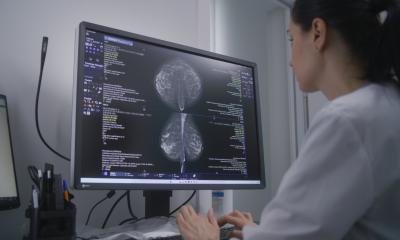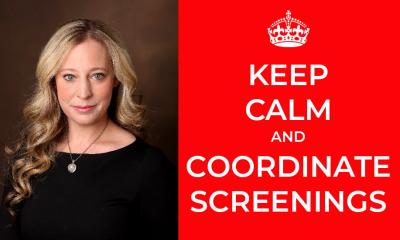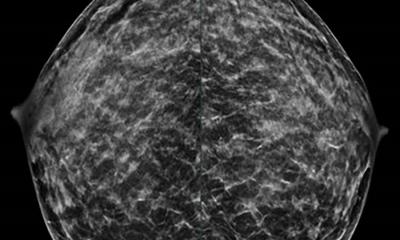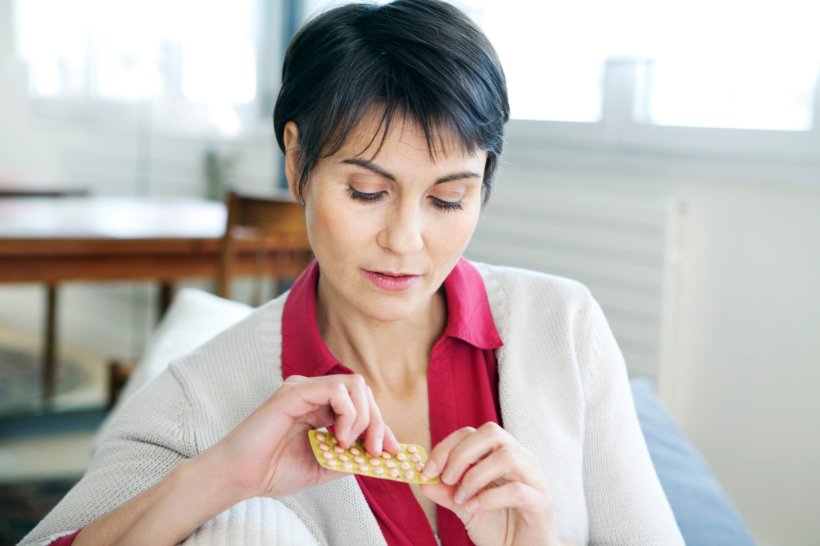
© RFBSIP – stock.adobe.com
News • Call for more informed decision
Hormone replacement therapy after breast cancer: a risk worth taking?
Breast cancer survivors with severe menopausal symptoms should be supported to make an informed decision about whether to have hormone replacement therapy or not, according to an interdisciplinary panel of experts including researchers from University College London (UCL).
The study, published in Menopause, provides the most comprehensive review to date on the use of hormone replacement therapy (HRT), also known as menopausal hormone therapy (MHT), in women who have been treated for breast cancer. It brings together evidence from clinical trials, observational studies, and expert opinion to address a long-standing clinical dilemma: can women safely use HRT to manage debilitating menopausal symptoms after breast cancer?
Breast cancer is the most common cancer among women worldwide, with 2.3 million women diagnosed annually. Modern breast cancer treatments are highly effective, so many women can expect to survive long-term, with over 700,000 survivors in the UK alone. Many of these women experience severe menopausal symptoms as a side effect of their cancer treatment, or because they experience natural menopause but have limited treatment options after breast cancer.
Recommended article
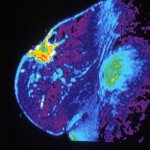
Article • Research, diagnostics, treatments
Focus on breast cancer
Breast cancer (breast carcinoma; often abbreviated as BRCA) is the most common cancer in women in many countries and the cancer with the highest mortality rate. The diagnostic and therapeutic options for breast cancer are correspondingly diverse. Keep reading for latest developments in early detection, staging, treatment and research.
While HRT is the most effective treatment for menopausal symptoms such as hot flushes, insomnia, mood disturbances, and genitourinary symptoms (e.g. vaginal dryness, painful sex, recurrent urinary tract infections), its use has traditionally not been recommended in breast cancer survivors because it contains oestrogen, which can increase the risk of disease recurrence in oestrogen receptor-positive breast cancers, which account for 70-80% of breast cancers. NICE guidelines therefore recommend that HRT is only used in ‘exceptional circumstances’.
We think that some women may consider it reasonable to take HRT after breast cancer, after recognising their own risk profile, if it meaningfully improves their quality of life
Jayant Vaidya
The research provides new insights into the risks and benefits of HRT for breast cancer survivors and offers an Expert Consensus Statement, a collective expert opinion that summarises the best available evidence on a specific topic, calling for a more patient-centred approach to menopause care after breast cancer.
Professor Jayant Vaidya, an author of the study from UCL Surgery & Interventional Science, said: “One of the most successful treatments for breast cancer is to starve it of oestrogen. However, many breast cancer survivors experience menopausal symptoms that negatively impact their quality of life. HRT that includes oestrogen is the most effective treatment for menopause symptoms, but it can increase the risk of relapse in oestrogen receptor-positive breast cancers, that can be stimulated to grow by oestrogen. Consequently, in practice it is rarely prescribed. Based on our analysis of the available evidence, we think that some women may consider it reasonable to take HRT after breast cancer, after recognising their own risk profile, if it meaningfully improves their quality of life. What we really need now is a new clinical trial, such as the MENO-ABC trial that we’re proposing, to accurately quantify the risks and benefits in light of modern diagnostic methods and treatments, so that women and their clinicians have the complete information they need to make an informed decision.”
For the study, a panel of 25 experts was assembled, including 18 voting members (10 menopause specialists, four medical oncologists, three breast cancer surgeons, and one radiologist) and seven patient representatives. Patient representatives played a key role in shaping the Expert Consensus Statement to ensure that it reflects real-world concerns and priorities. Together, the panel created 38 statements summarising the key issues relating to HRT and breast cancer.
With these statements in mind, the 18 clinical panel members reviewed the available evidence concerning use of both locally effective vaginal hormones (vaginal oestrogen and vaginal dehydroepiandrosterone, DHEA) and systemic HRT (oestrogen, progesterone, and testosterone, that have effects throughout the body), in women with and without a history of breast cancer.
Across three voting rounds the original statements were reviewed and edited until 34 consensus statements were produced which at least 70% of the panel agreed with. Statements that did not achieve consensus were rejected.
Among the key conclusions were:
- Vaginal oestrogen is unlikely to increase the risk of breast cancer recurrence due to minimal systemic absorption and can be used to treat genitourinary symptoms in breast cancer survivors.
- Systemic HRT can increase the risk of relapse in women with oestrogen receptor (ER) positive breast cancer, particularly within the first 5-10 years after diagnosis. However, only a small proportion of this increase in risk is for the more dangerous ‘distant relapse’, where the cancer spreads to another part of the body. The magnitude of this increase in risk is likely to vary according to the background risk of relapse, and some patients with low-to-medium risk breast cancer and severe menopausal symptoms may choose to accept an increase in risk and take HRT to improve their quality of life.
- Shared decision-making is key. All patients considering HRT should be supported to make informed choices based on their symptoms, cancer history, and personal preferences.
- The panel also recommended that patients considering HRT after breast cancer should be enrolled in a clinical trial, such as the proposed MENO-ABC trial, which aims to gather long-term data on outcomes including recurrence, mortality and quality of life.
We should move away from a de facto ban of HRT after breast cancer diagnosis towards a more nuanced, evidence-based discussion that respects each woman’s circumstances, values and preferences
Sarah Glynne
The authors reviewed the best available randomised evidence and found that in the general population, 2.3% of women aged 50-59 develop breast cancer over five years. Combined oestrogen and progestin HRT increases the risk to 2.7%, but oestrogen-only HRT decreases it to 1.9%.
The authors critically reviewed data from two randomised clinical trials (HABITS and the Stockholm Study) and found that in breast cancer patients who had moderate-risk disease, HRT increases the risk of relapse from 14% to 20% over seven years. In other words, 80% of women who use HRT after medium-risk breast cancer will not experience a relapse.
For women with low-risk breast cancer, HRT increases the risk of relapse from 5% to 7.2%. This means that despite use of HRT, 92.8% of women with low-risk disease will not experience a relapse. Crucially, most of the increase in risk from use of HRT is from local relapse or a second breast cancer which, while serious, are usually fully treatable. The increase in risk of distant relapse, which is more dangerous and incurable, is relatively small. For example, HRT increases the 7-year distant relapse rate from 5.8% to 6.3% in women with moderate-risk breast cancer, and from 2.1% to 2.3% in women with low-risk disease.
Dr Sarah Glynne, first author of the study and a GP Menopause Specialist at the Portland Hospital, said: “Women suffering with debilitating menopausal symptoms should be able to talk to their clinicians and understand the estimated risk to them personally if they choose to take HRT. This will enable women to properly weigh up the pros and cons of HRT – mainly relief from menopausal symptoms versus an increased risk of relapse or second breast cancer – and decide for themselves whether they would like to take HRT or not. As a panel of experts, the consensus was that we should move away from a de facto ban of HRT after breast cancer diagnosis towards a more nuanced, evidence-based discussion that respects each woman’s circumstances, values and preferences.”
Source: University College London
02.10.2025



